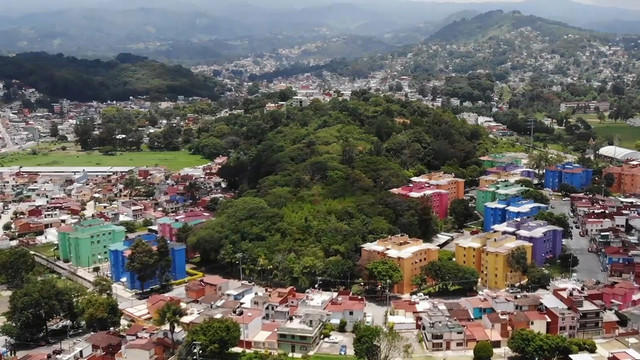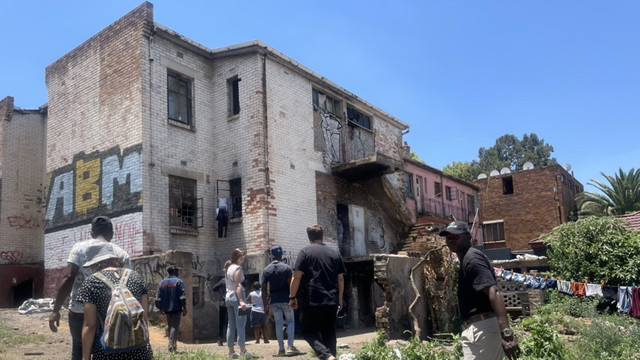Comparing approaches to riverbank vulnerability in Indonesia
What lessons can be learned from two markedly different cases of vulnerability among urban riverbank settlements in Indonesia?


A riverbank settlement in Indonesia illustrates the vulnerability of residents to both flooding and pollution (Photo: Isabelle Lemaire/IIED)
This blog is drawn from an extended interview David Satterthwaite conducted with John Taylor, author of "A tale of two cities: comparing alternative approaches to reducing the vulnerability of riverbank communities in two Indonesian cities", which examines cases from the cities of Surabaya and Surakarta, both on the island of Java. The full text of this paper, from the October 2015 issue of Environment and Urbanization, is available open access.
Taylor, the director of the Indonesian NGO Yayasan Kota Kita, discusses some of the topics covered in this interview in the video below. You can also watch this on IIED's YouTube channel.
Why riverbank communities are vulnerable
Historically cities have formed along the banks of major rivers, because the rivers were traditionally used as a means of transportation or provided easy access to water for drinking. As cities have grown you end up with very dense settlements there.
Riverbanks become vulnerable due to flooding and, more recently, pollution, and this exposes the people who live there to these hazards. Because the poor are unable to access land elsewhere many poor communities end up living along riverbanks, so they are often the most exposed to vulnerability.
Reducing vulnerability in the city of Solo
In Solo, the local government empowered them [the riverbank community] with a grant to seek alternative lots and rebuild their homes and infrastructure. They also supported them by pledging to formalise their tenure and addressing some of their other vulnerabilities and needs in their new sites.
So I think that that was successful, in the sense that they were able to move and do so in a way that the community was happy with.
Why attempts to reduce vulnerability in Surabaya did not succeed
I think one the main reasons was the confusion caused by overlapping jurisdictions which meant that there was little clarity over who should do what – how the community should act, or how the policymakers should act.
This created a big problem, because the different layers of government were not on the same page – the provincial-level government felt they were managing Surabaya's waterways, but the city government exerted territorial control over the city, so riverbank communities were left in a state of limbo, uncertain about how to proceed.
On the role of local governments and decentralisation
Indonesia's a very interesting case because it's such a decentralised governance system. And so a lot of the policymaking is in the hands of local government.
I think that riverbank resettlement would not be possible with just the funds that local governments have. So I think national government should financially support local governments to develop their own solutions that work in the contexts that they understand.
Often local governments don't make a lot of information available about relocation processes, such as how they will happen, what are the proposed plans and what kind of support households will receive. For these policies to be made effective, local governments have to be far more transparent and provide information in a way that local communities can really understand the process, not simply issuing edicts and eviction notices.

So I think if governments can be much more open to working with people, plus have that support from national government to be able to implement ambitious projects, they can be empowered to do a lot more.
Incentivising local government action
Climate change is a very pressing issue, and the impacts are becoming increasingly burdensome on the poor and on the cities as well. So I think one way is to say 'taking action to increase resilience is going to help the city overall, supporting economic development and citizen empowerment. What is good for building resilience also addresses those other important issues'.
Another incentive is that a lot of what happened in these cases, and ways to build resilience, do not require a lot of financial resources.
They have to do with connecting people and communities, sharing information and generating dialogue, and collaborating to resolve issues. And those things can have a tremendous impact in reducing vulnerability and generating prosperity but without actually costing much to do so.
Promoting local government-community relations
Something that's very important to highlight – and I think this is an important factor behind success in Solo – is that the dedication to the process, the dialogue, the repeated attempts to meet and sit with the community to hammer out solutions… goes against what has become the traditional form of top-down 'you're going to do what we tell you to do' approach. If you can establish trust and buy-in, certainly in these Javanese cases, people will follow the lead.
Good governance, or that new form of engagement, is very significant to bringing about larger change that requires people to feel trust and take a leap of faith.
A top-down solution is not going to work for everybody. There’s interaction and give and take. There's a negotiation that occurs. Formulating urban policies requires people to have information, for there to be patience in finding solutions that work for the people. And so I think an emphasis on the process is essential.
Civil society's role in supporting vulnerable communities
NGOs or other civil society networks can support vulnerable communities, by giving them information that allows them to engage with local governments on more of a level footing. That’s very important because there's potentially a very large imbalance that exists when governments engage the urban poor, especially concerning an issues like relocation.
I think that when riverbank communities are able to more actively participate in generating ideas and solutions we can start to see much better policies emerge, I just hope governments can become a bit more open to that.
I think that where more communities are involved in engaging with governments, we can really bring about a larger scale of change.
John Taylor (indojota@gmail.com) is the director of the Indonesian NGO Yayasan Kota Kita (Our City Foundation).



